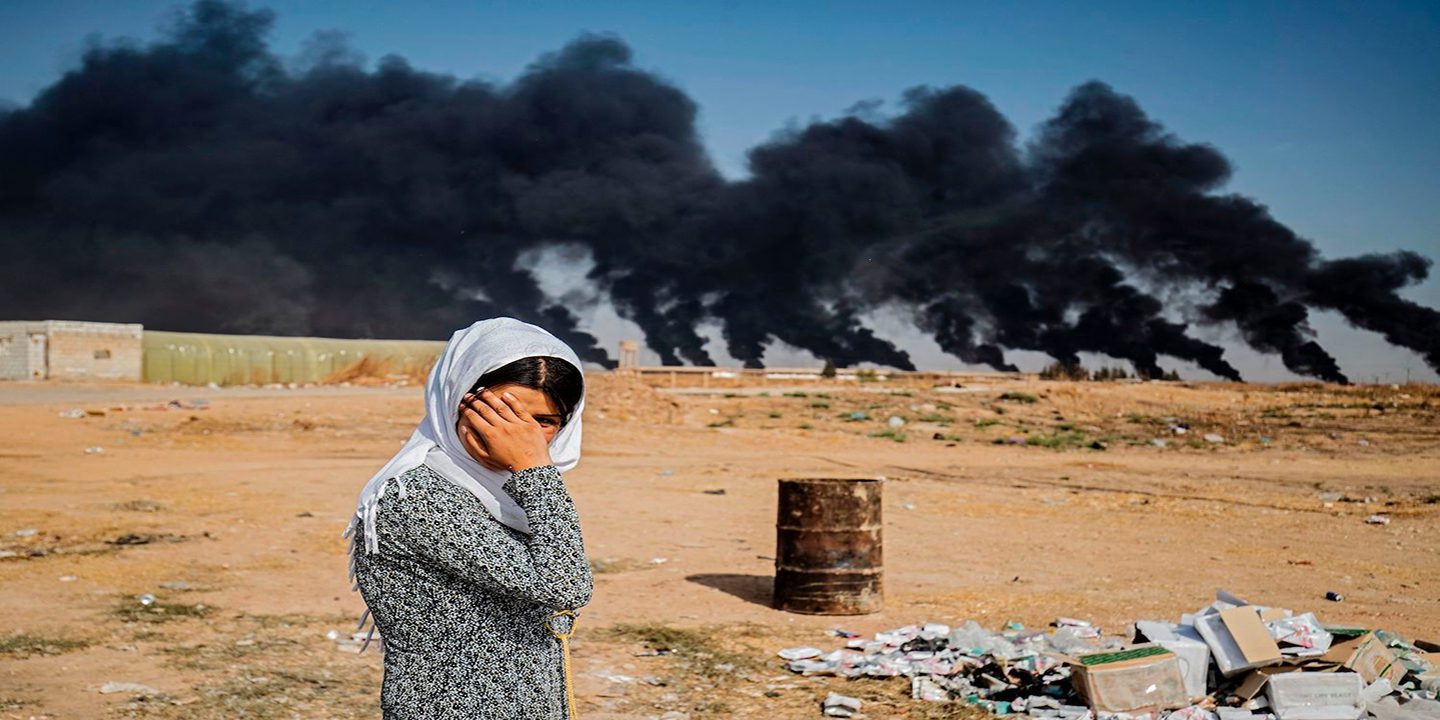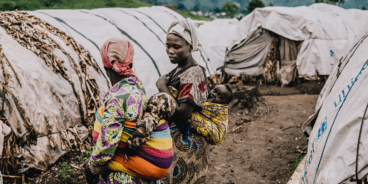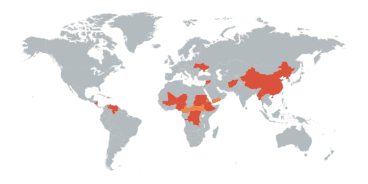

Atrocity Alert No. 177: South Sudan, Afghanistan and Syria
Atrocity Alert is a weekly publication by the Global Centre for the Responsibility to Protect highlighting situations where populations are at risk of, or are enduring, mass atrocity crimes.
UN Security Council visits South Sudan as crucial deadline looms
On 12 September 2018 a Revitalized Agreement on the Resolution of the Conflict in the Republic of South Sudan (R-ARCSS) was signed by the country’s major political leaders – including President Salva Kiir and former Vice President and rebel leader Riek Machar – formally ending a civil war that started in December 2013. Following numerous delays and extended deadlines, on 12 November the parties are supposed to establish a Transitional Government of National Unity (TGoNU).
With less than a month until the deadline, many outstanding issues remain. Crucially, the current army (SPLA) and former rebel forces have not been unified into a new national army, and there has been no resolution of the issue of the number of states within South Sudan and their boundaries.
Both issues have grave implications. In the past, sections of the SPLA were largely organized and mobilized along ethnic lines, resulting in deadly clashes between those loyal to Machar and those loyal to Kiir. These clashes eventually escalated into a full scale civil war during which an estimated 400,000 people were killed and 4 million displaced. Both sides, and their allied militias, engaged in widespread war crimes and targeted civilians on the basis of their ethnicity and presumed political loyalties.
Additionally, President Salva Kiir’s unilateral decrees during 2015 and 2017, increasing the number of states from 10 to 32, were seen as consolidating his political dominance over the South Sudanese state. Disputes over state boundaries were also linked to wider arguments between the government and opposition regarding perceptions of ethnic favoritism and the abuse of power.
Earlier this week, on 20 October, the UN Security Council (UNSC) visited Juba. While meeting with the UNSC delegation Machar expressed serious concern about the failure to unify the armed forces, and said that his party, the Sudan People’s Liberation Movement-In Opposition (SPLM-IO), will not join the new transitional government on 12 November. Machar warned that if the TGoNU is established prematurely, then “the ceasefire that we have been enjoying will be in jeopardy.” Machar, who fled the country in August 2016 and is supposed to become Vice President again on 12 November, has also said that he is not willing to permanently return to South Sudan until security measures are in place.
After numerous previous failed peace agreements, the 2018 R-ARCSS presented a genuine opportunity for South Sudan to overcome past divisions, end its crippling humanitarian crisis and ensure that its people no longer have to live in fear of atrocities at the hands of competing military forces and ethnic militias. The future of the entire peace process now depends upon the same leaders that led South Sudan into five years of civil war and their ability to resolve outstanding issues in just three weeks. The UNSC and African Union must ensure that the current obstacles are overcome and make it clear that all those who jeopardize the fragile peace in South Sudan will be held accountable for their actions.
Deadly mosque attack highlights civilian death toll in Afghanistan
Last Friday, 18 October, at least 69 civilians were killed and 40 injured in a deadly bombing inside a mosque in Haska Mena district in the eastern Nangarhar province, Afghanistan. No group has claimed responsibility, but the Afghan government has accused the Taliban of perpetrating the attack. A spokesperson for the Taliban denied responsibility, claiming that it was a mortar attack by government forces.
Throughout the conflict in Afghanistan places of worship, worshippers and religious leaders have been the target of attacks, resulting in 453 civilian casualties in 2018 alone. Such attacks violate International Humanitarian Law.
Responding to Friday’s attack, Tadamichi Yamamoto, Head of the UN Assistance Mission in Afghanistan (UNAMA), said that the mosque bombing had no possible justification. “Those who are responsible for enabling this attack must be brought to justice and held to account. These brutal and senseless attacks against people at prayer are atrocities. Such attacks at congregations and places of worship may amount to war crimes.”
In its quarterly report released on 17 October, UNAMA noted that more civilians have been killed and injured in Afghanistan in the last three months than in any other three-month period in the past decade. Between July and September 1,174 civilians were killed and 3,139 injured, bringing the total number of civilian casualties in 2019 to more than 8,000.
The Afghan government, with support from the international community, must increase its efforts to protect civilians. Those responsible for war crimes, including targeted attacks on civilians and places of religious worship, must be held accountable for their actions. The government should also continue to explore the possibility of all parties to the conflict resuming substantive dialogue aimed at ending the 18-year war.
Turkish troops allegedly use white phosphorus against Kurdish civilians
Since Turkey launched “Operation Peace Spring” in northeast Syria on 9 October, there have been widespread civilian casualties as well as attacks on health facilities by Turkish forces and affiliated non-state armed groups. Last Thursday, 17 October, Kurdish forces alleged that Turkey has illegally used prohibited weapons, including napalm and white phosphorus munitions, in and around the town of Ras al-Ayn. The Kurdish Red Crescent said that patients, including several civilians, were being treated at a hospital in Hasakeh for “horrific burns” caused by a Turkish airstrike. Turkey has denied the accusation.
White phosphorus is an incendiary weapon that causes horrific injuries as it burns structures and people. The use of white phosphorus and other incendiary munitions in civilian-populated areas is prohibited under International Humanitarian Law and could constitute a war crime. The Organisation for the Prohibition of Chemical Weapons said that it is also “aware of the situation” and is collecting information “with regard to possible use of chemical weapons.”
The alleged white phosphorus attacks took place just hours before the announcement of a five-day ceasefire. Turkey committed to pause its military operations against the Syrian Democratic Forces and the Kurdish People’s Protection Units (YPG) until 22 October, in return for the YPG withdrawing from a large strip of territory along Syria’s northern border. At the time of publication, Russia and Turkey had negotiated a further 150-hour extension of the ceasefire.
Turkish airstrikes, artillery and ground attacks have also caused thousands of Kurdish civilians to flee northeast Syria, creating a major displacement crisis. Despite the ceasefire, there were reports that Turkey continued to attack Kurdish fighters and civilians in Ras al-Ayn.
In a joint statement on 18 October, the chairs of the Foreign Affairs Committees of the United Kingdom, France, Germany, the European Union and the US House of Representatives, all condemned Turkey’s invasion of northeast Syria as “a military aggression and a violation of international law.” The lawmakers also said that the Turkish invasion was “causing suffering for the local people who are forced to flee,” resulting in “further instability in Syria and the neighboring region.”
Turkey, if proven to have illegally used white phosphorus and other prohibited weapons against civilian populations, must be held accountable for its actions. All UN member states should impose targeted sanctions on those responsible for war crimes and the potential ethnic cleansing of the Kurdish population from northeast Syria. All members of the international community – but particularly EU member states – should also join Germany, France, Finland and the Netherlands in immediately halting all arms sales to Turkey.

